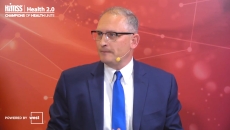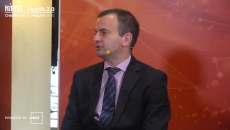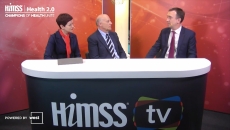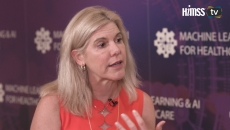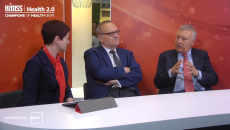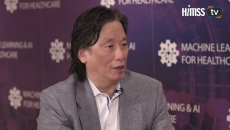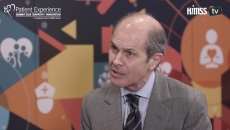Workforce
Ronald Petru, CMIO at Radboudumc in the Netherlands, says that organizations need to change the workforce culture, while also ensuring that a proportional investment is made into security to ensure risks are mitigated.
We need to collaborate and work with organizations such as HL7 on developing tools to ensure greater interoperability on a global level, says UniversalDoctor CEO Jordi Serrano Pons.
The pioneering Pennsylvania health system has picked Ryu, who most recently served as its chief medical officer, to replace Dr. David Feinberg, who joined Google in 2018.
Konstantin Parshin, vice president of the Skolkovo Foundation, says the Russian high-tech innovation center includes startups with a mission to improve healthcare around the world.
Amy Compton-Phillips, EVP and CCO at Providence St. Joseph Health, says her organization's chief medical analytics officer is both a physician and a data scientist so is able to understand clinical context as well as data structure.
To ensure a successful digital transformation, physicians and nurses need to be part of any planned digital implementations, says Philippe Kolh, CIO at University Hospital of Liège, a Stage 6 EMRAM Belgium-based hospital.
The belief that machine intelligence will replace human clinicians is wrong; AI and ML will actually make the field a more attractive career choice for physicians and radiologists, says CHOC Children's CIO Anthony Chang, MD.
Some health systems are viewing these academic medical center acquisitions as a means of getting closer to the talent pipeline.
Fortune Magazine Senior Editor at Large Geoff Colvin says when members of teams have social sensitivity, they become much more efficient and that improves the patient experience a lot.
Although hiring in healthcare has slowed, the trend has been positive overall, with the industry adding about 391,000 jobs over the past 12 months.
